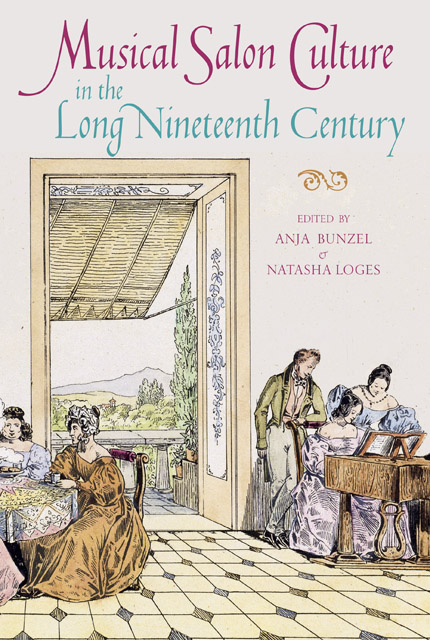15 - An Invitation to 309 Beacon Street: Clara Kathleen Rogers and her Boston Salon
Published online by Cambridge University Press: 17 January 2023
Summary
English-born soprano Clara Kathleen Rogers (1844–1931, Figure 15.1) had only travelled to Boston, Massachusetts, in January 1873 to sing Elvira in one performance of Don Giovanni. She was to return to New York and her regular singing commitments the following day. But an afternoon of reading through Schubert and Franz songs with pianist Otto Dresel, a German immigrant considered by his contemporaries to be ‘the musical conscience of Boston’, left her convinced that ‘Boston … outstripped New York in musical appreciation’. She settled in Boston permanently soon thereafter; here, Rogers wrote later, was ‘the musical atmosphere I craved’. Over the next several decades, Boston continued to flourish as the bustling epicentre of art music in the United States: ‘a city which in musical importance ranks second to none’, proclaimed one critic in 1899. In addition to a dizzying number of performances by groups including the Handel & Haydn Society, Boston Symphony Orchestra (BSO), various music clubs, and visiting artists, Boston’s art music scene also extended to private musical evenings in the homes of the city’s wealthiest residents.
Rogers was among those who hosted such gatherings; her ‘musicales’, as she called them, took place at her 309 Beacon Street residence in the affluent Back Bay neighbourhood. The homogeneity of Boston’s upper class in the nineteenth century meant that salons including Rogers’s took place in similar settings with similar clientele; Rogers, however, who had married into the upper classes, was the only professional musician among the regular hosts and hostesses. Furthermore, Rogers discusses her salon in her memoir of life in Boston, The Story of Two Lives (1932), a volume that serves as the most extensive single source written by a hostess about Boston’s musical salons.
This chapter will examine Two Lives alongside materials from the Rogers Memorial Collection (Harvard Theatre Collection), which preserves letters, music manuscripts, newspaper clippings, scrapbooks, photographs, pamphlets, and realia once belonging to Rogers and her husband. Together, these sources provide a glimpse into the experience of attending a Boston salon during the 1880s; illuminate the complicated intersection between music and social class in Rogers’s life; and demonstrate how, though her events grew smaller in scale, music-making at home remained an important feature of Rogers’s routine during later years.
- Type
- Chapter
- Information
- Musical Salon Culture in the Long Nineteenth Century , pp. 225 - 238Publisher: Boydell & BrewerPrint publication year: 2019



